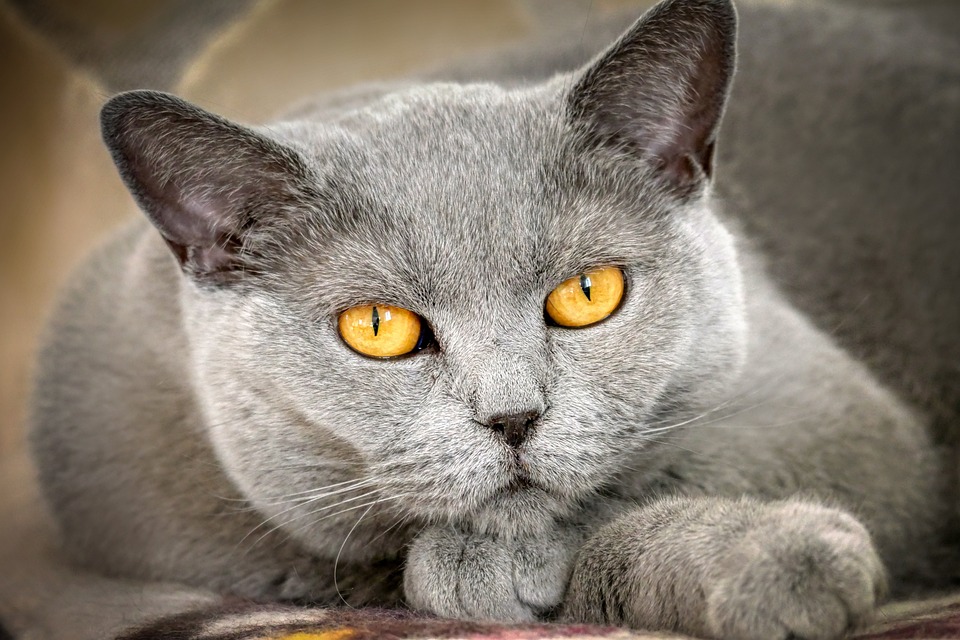Excessive grooming in cats can often be attributed to allergies. While it may seem harmless, it can lead to various health issues if left unaddressed. In this article, we will explore the causes of excessive grooming and provide practical tips to help you manage and alleviate your cat’s discomfort. Additionally, we have included a FAQ section to address common concerns related to this topic.
Understanding Excessive Grooming in Cats
Excessive grooming refers to a behavior where a cat spends an abnormally large amount of time licking, biting, or chewing its fur. While grooming is a natural behavior that helps cats maintain cleanliness, excessive grooming can be an indication of an underlying issue.
Symptoms of Excessive Grooming
– Bald patches or thinning fur
– Redness, inflammation, or sores on the skin
– Swelling or scabs
– Excessive hairballs
– Changes in appetite or weight loss
Common Causes of Excessive Grooming
– Allergies (food, environmental, or contact)
– Parasites (fleas, mites, or ticks)
– Skin infections or irritations
– Stress or anxiety
– Pain or discomfort
Identifying Allergies as the Root Cause
Allergies are a common trigger for excessive grooming in cats. It is crucial to identify the specific allergen that is causing the reaction in order to effectively manage the condition.
Types of Allergies in Cats
– Food Allergies: Certain ingredients in your cat’s diet can trigger an allergic response.
– Environmental Allergies: Pollen, dust mites, mold, or other airborne allergens can cause allergies in cats.
– Contact Allergies: Certain substances that come into direct contact with your cat’s skin can trigger an allergic reaction.
Allergy Symptoms in Cats
– Itchy skin, face, or ears
– Frequent scratching or rubbing against furniture
– Excessive grooming or hair loss
– Sneezing, coughing, or watery eyes
– Vomiting or diarrhea (in case of food allergies)
Managing Excessive Grooming Due to Allergies
Once you’ve identified allergies as the root cause of your cat’s excessive grooming, there are several strategies you can implement to address the issue.
Consult with a Veterinarian
– Your veterinarian will help determine the specific allergen and recommend appropriate treatments.
– They may suggest allergy testing or a food trial to pinpoint the exact cause.
Create an Allergy-Free Environment
– Regularly clean your cat’s bedding, toys, and environment to minimize allergens.
– Use air purifiers or keep windows closed during high pollen seasons.
– Vacuum frequently and consider using hypoallergenic cleaning products.
Implement a Hypoallergenic Diet
– Switch to a high-quality hypoallergenic cat food, preferably with limited ingredients.
– Avoid common allergens such as poultry, wheat, soy, or dairy.
– Consult with your veterinarian for personalized dietary recommendations.
Use Medications or Supplements
– Your veterinarian may prescribe antihistamines or corticosteroids to provide relief from allergy symptoms.
– Supplements like omega-3 fatty acids can help improve your cat’s skin health and reduce inflammation.
Provide Distractions and Mental Stimulation
– Engage your cat in interactive play sessions to redirect their focus from excessive grooming.
– Offer puzzle toys or treat-dispensing toys to keep them mentally stimulated.
Frequently Asked Questions (FAQs)
Can excessive grooming harm my cat’s health?
Excessive grooming can lead to skin infections, hair loss, and other health issues if left untreated. It is important to address the underlying cause and seek veterinary advice.
How can I determine if my cat is allergic to a specific substance?
Allergy testing, either through blood work or skin tests, can help identify specific allergens. Alternatively, you can conduct a food trial to determine if food allergies are the culprit.
Are there any natural remedies for cat allergies?
While natural remedies may provide some relief, it is essential to consult with a veterinarian to ensure proper diagnosis and treatment. Natural remedies like coconut oil or herbal supplements should be used under professional guidance.
Should I consider allergy testing for my cat?
Allergy testing can be beneficial in determining the specific allergens affecting your cat. It helps create a targeted management plan and prevents unnecessary exposure to potential allergens.
How long does it usually take to see improvements after implementing allergy management strategies?
The time frame for improvement varies depending on the cat and the severity of the allergies. It can take several weeks or even months to see significant improvements. Patience and consistent management are key.
Remember, excessive grooming due to allergies can be distressing for both you and your cat. By understanding the causes and implementing appropriate strategies, you can help your feline companion find relief and lead a happier, healthier life.








